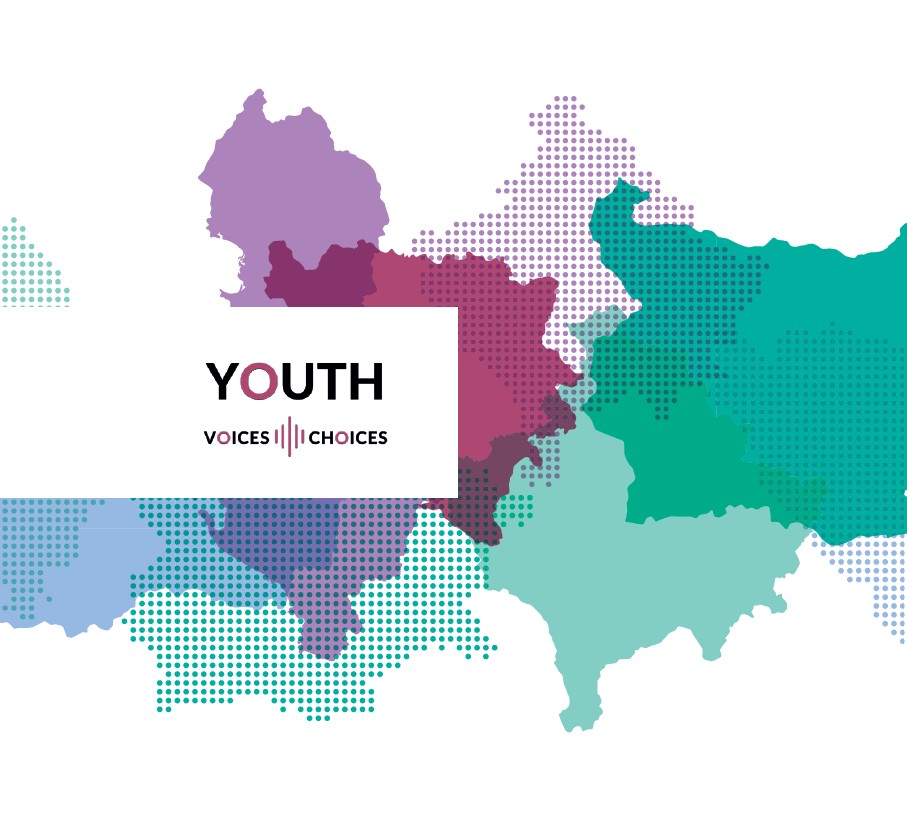Spotlight
A selection of resources from across the Federation

Abortion Care and Costs in Europe and Central Asia
IPPF EN carried out research into the economic burden that women face in accessing abortion care in Europe and Central Asia. This factsheet provides a snapshot of the findings.
Filter our resources by:


| 30 July 2024
Startup toolkit for MEPs: championing sexual and reproductive safety
Sexual and reproductive health and rights (SRHR) encompass all rights related to sexuality and parenthood. When SRHR are realised, people are free and able to decide if, when and with whom to have sex; they have safe, healthy, consensual, pleasurable relationships; they have the means to decide whether and when to become pregnant, continue a pregnancy, become parents, and have the number of children they want; free from discrimination, coercion and violence. SRHR are human rights, and essential to leading a free, safe and healthy life. But they are far from universally accessible. Throughout the world, and even within Europe, access to abortion and other reproductive rights varies greatly, and is subject to a broad range of restrictions. Access to care is even harder for populations who suffer from systemic and intersecting discrimination and inequalities. The European Parliament has a longstanding legacy as the EU institutions' strongest defender of SRHR, and it is vital that it continues to uphold and advance them in the new legislative term. As an MEP, you can take many actions in a wide range of policy areas of EU competences, to advance SRHR in the next five years. Here is a collection of resources to help navigate some of the key topics related to sexual and reproductive safety and dignity.

| 08 March 2023
New data on European donor support to sexual & reproductive health & rights worldwide
Now is when standing by our values matters most. We must treat all people with dignity and humanity, not despite, but because we are faced with multiple crises caused by war, inflation, and a hard post-pandemic recovery. In 2021, European countries struggled to keep their promises to uphold sexual and reproductive freedom for all. They managed to maintain their overall support to sexual and reproductive health & rights worldwide by investing 2.780 billion euros. This includes 1.385 billion euros allocated to sexual health and family planning, which means at least 10.5 million women and couples had access to contraceptive care. But much more is needed. More investment and better policies around sexual and reproductive health will have a profound impact on people’s futures. It will give options to those of us without them. Which in turn will lead more people to thrive, thus creating safer, more just and prosperous communities. We have a shared moral responsibility to respond to global challenges in an equitable manner. In our most recent report, we are looking at 2021 funding data and 2022 political stances adopted by thirteen European governments and the EU institutions with regards to sexual and reproductive health and rights. Watch our video to get an overview of the findings and download the below resources for more information.

| 22 November 2022
Gynaecological and Obstetric Violence - a form of gender-based violence
The widespread and systemic mistreatment and violence against women experienced during childbirth and other reproductive health services has gained international visibility in recent years, following pioneering work in several Latin American countries to recognise and criminalise this form of gender-based violence. International institutions have also spoken out on the issue. In 2014, gynaecological and obstetric violence was acknowledged by the World Health Organisation, and in 2019 the UN Special Rapporteur on Violence against Women described it as a “serious violation of women’s human rights occurring across all geographical and income-level settings”. In Europe, the parliaments of the Council of Europe and of the European Union have very recently adopted resolutions drawing attention to this phenomenon and calling for national and European measures to tackle it. But to date, no national government has put in place legislation specifically to criminalise gynaecological and obstetric violence. This means that currently, people living in EU Member States have few legal protections or means of redress. With this in mind, IPPF EN produced this research and policy paper to provide an outline of the systemic and widespread nature of gynaecological and obstetric violence across many countries in Europe, and make recommendations to European and national decision-makers to tackle this form of gender-based violence. On this page you can download our full research and policy paper, as well as a short summary of the report. Check out IPPF EN's Safe From Harm campaign, highlighting the EU action we support to combat gender-based violence. *** This work was funded by the European Union through the Citizens, Equality, Rights and Values Programme. Disclaimer: Views and opinions expressed are those of IPPF EN and do not necessarily reflect those of the European Union or the European Commission. Neither the European Union or the European Commission can be held responsible for them.

| 29 March 2022
Youth access to SRH information, education and care in the Balkans in COVID times
COVID-19 created the largest health and socio-economic crisis of our generation. Many health systems were pushed to the brink by restrictive measures rushed in to respond to the pandemic, resulting in the deprioritisation of some existing healthcare services. In almost all European countries, COVID-19 had a negative impact on the delivery of vital sexual and reproductive healthcare, including maternal health and family planning, for women and groups that face barriers to accessing care, including young people. The pandemic also uncovered weaknesses within our systems and exposed the fact that countries are not adequately prepared to deal with health emergencies. To help bring about positive change for young people, IPPF European Network is working to strengthen healthcare systems through the project Youth Voices, Youth Choices, and to remove all kinds of barriers preventing youth from accessing essential care in five Balkan countries: Albania; Bosnia & Herzegovina; Bulgaria, Kosovo and North Macedonia. We are focusing particularly on the needs of those living in remote areas, as well as those from communities that face challenging social conditions, such as the Roma. POLICY RECOMMENDATIONS In October 2022, IPPF EN launched a set of regional policy recommendations that call on decision-makers to listen to young people and uphold their SRHR as they build back health and social systems in the wake of the pandemic. Presented at the European Parliament on 26 October by youth advocates and experts, with the support of MEP Fred Matić, the recommendations were developed by a group of specialists who came together to develop a blueprint for designing systems that prioritise access to youth-friendly SRH care, and better support of young people’s health and well-being. The policy recommendations are available for download below. RESEARCH REPORT As a basis for this work, in 2021 and early 2022, we conducted a study to provide us with a clearer picture of the impact of the pandemic on young people’s SRHR. The data was published in a series of reports presenting the findings of the study, carried out by and among youth in five Balkan countries. The reports, available for download below, document young people’s SRH needs and experiences and the perspectives of healthcare providers and other relevant stakeholders on these needs. They also capture the latter’s needs as they deliver services, information and education to young people, building on their experience of COVID-19. YOUTH VOICES Young people are at the heart of this work. They were part of the teams that carried out the research presented in the reports below. They participated in the expert groups that developed our regional recommendations for policy change (below) at national and regional level, and they are being supported and empowered to advocate for these changes. Youth were also in the lead at our 'Healthy Youth – Healthy Future' multi-stakeholder meeting in Tirana in spring 2023, where together with staff from our partner organisations they held discussions with decision-makers and experts from the field, concluding with the signing of a joint declaration on protecting the health and social wellbeing of young people during and beyond moments of crisis - available for download below. Young people also carried out a series of interviews among their peers to share stories of how the pandemic affected their access to SRHR, and what their vision is for a more youth-friendly future that listens to the younger generations and upholds their SRHR.

| 09 July 2021
COVID-19 IPPF innovation and best practice
The COVID-19 pandemic has had a profound impact on access to and enjoyment of sexual and reproductive health services and rights. While families, couples and individuals have faced intense pressure and hardship as a result of the pandemic, life-saving sexual and reproductive health (SRH) services and supplies, including sexual and gender-based violence services, have become scarce and/or inaccessible. Existing socioeconomic inequalities have been exacerbated, especially as they pertain to girls, women and marginalised groups. As nationally owned and locally operated health service providers, IPPF Member Associations (MAs) remain committed to their communities and the people within them. In this Case Study series, we share progress, learning and innovation that has occurred within MAs over the course of the pandemic. The case studies cover: telemedicine for abortion in the COVID-19 context, SGBV response in COVID-19, adapting sexuality education in COVID-19 through digitalisation, and leaving no one behind, especially marginalised populations. Take a look at the above Case Studies from Bulgaria, Estonia, Serbia and Ireland.

| 10 May 2021
European Parliament report on the situation of sexual and reproductive health and rights in the EU
This European Parliament Report, authored by MEP Predrag Fred Matić, is the first report specifically dedicated to sexual and reproductive health and rights (SRHR) in almost 10 years. Whilst the European Parliament has repeatedly expressed concerns over the lack of full realisation of, and attacks against women’s rights, gender equality and SRHR in various reports, this report will give a high level of political importance to SRHR at EU level. It will send a strong signal to the European Commission, EU Member States, as well as all European citizens, that MEPs are fully committed to protect and promote SRHR in the EU. The report reaffirms SRHR as human rights, intrinsically linked with gender equality and combating gender-based violence; it highlights the remaining challenges in accessing the whole range of SRHR in the EU, challenges compounded by COVID-19 measures; and denounces the backsliding on women’s rights, gender equality and SRHR across Europe and globally. To learn more about why it's important read our briefing developed with the European Parliamentary Forum for Sexual & Reproductive Rights.

















